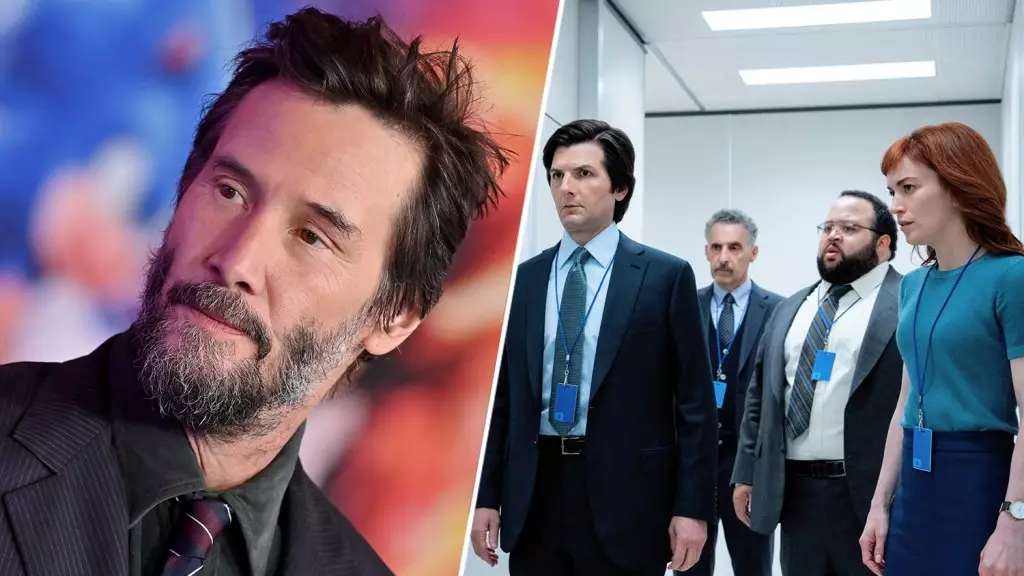As “Severance” makes its much-anticipated comeback for Season 2, viewers are once again immersed in the peculiar and dystopian environment of corporate life—a world where the line between personal and professional is intentionally blurred. The premiere offers a bittersweet return, marked not only by a gripping narrative but also highlighted by a notable voice cameo: Keanu Reeves, who lends his iconic voice to the Lumon building, amplifying the show’s eerie yet enticing atmosphere. This clever blending of familiar voices with surreal contexts serves to deepen the audience’s emotional connection to an otherwise chilling corporate entity.
The decision to cast Keanu Reeves was not arbitrary; according to series creator Dan Erickson, the team aimed for a voice that elicited warmth amid the unsettling backdrop of the Lumon workplace. An inviting voice juxtaposed with a cold corporate environment adds complexity to the show’s themes, echoing the surreal kindness found in a place that ultimately seeks to control its employees’ thoughts and memories. This duality in presentation—creating a friendly facade surrounding a sinister reality—highlights the psychological tensions present in today’s corporate culture.
As the storyline progresses in the ten-episode arc, the central characters, led by Mark (Adam Scott), face increasingly severe consequences from their experiments with the “severance” technology that separates work from personal life. It is here that the show examines dangerous ethical dilemmas and the inherent human struggle against systemic oppression. While the first season introduced audiences to this disjointed corporate world, Season 2 delves deeper, encouraging viewers to consider the implications of such a division in their own lives.
Erickson has effectively tapped into the zeitgeist of modern work culture, where discussions about remote work and employee autonomy have become increasingly prominent. The series debuted during a time of significant shifts in how society views the workplace. While Season 1 coincided with a return to office spaces, the evolving dialogue surrounding employment practices has led to a profound re-examination of work’s role in individual identity. The emergence of the “Great Resignation” illustrates a historic shift; many are questioning whether traditional professional frameworks are conducive to a fulfilling life.
The fundamental question posed by Severance—the meaning of work beyond the corporate grind—remains unresolved. As viewers journey with the characters through the increasingly complex plot of Season 2, they are left pondering: What lies beyond the need for traditional employment? The exploration of these dilemmas is not just a narrative device but also a reflection of real-world concerns. As the series navigates the implications of breaking away from outdated systems, it boldly invites its audience to reflect on their own experiences and aspirations.
The return of “Severance” is more than just a continuation of a gripping narrative; it’s a cultural commentary that taps into current anxieties, making it relevant and thought-provoking. The show’s blend of dark humor, ethical exploration, and surreal storytelling captivates, ensuring that audiences will remain engaged as the second season unfolds.

